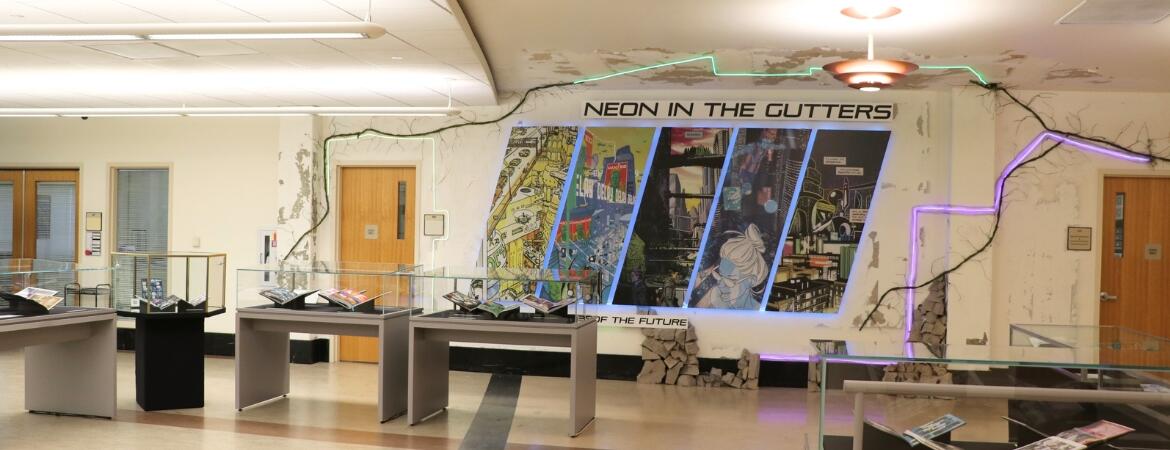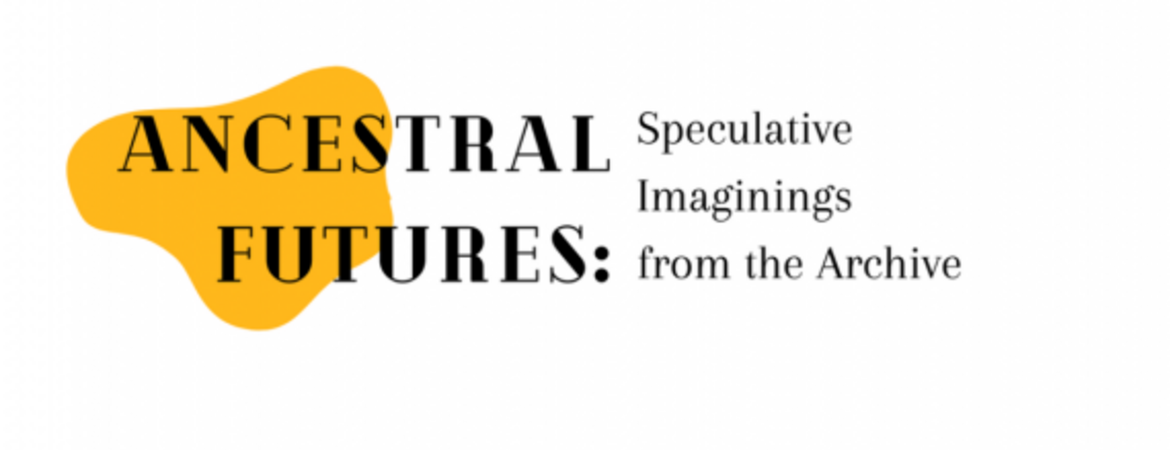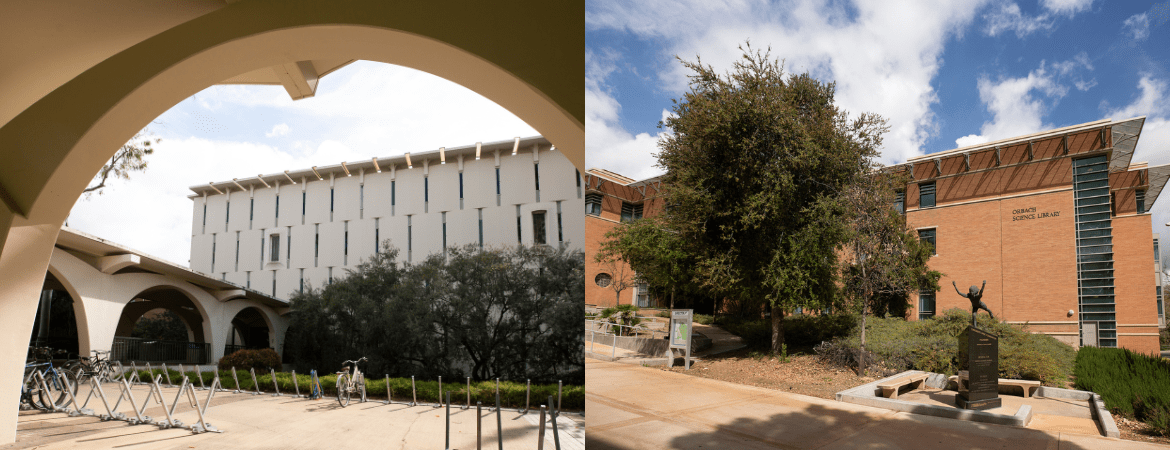Search
Search
Neon in the Gutters: Cyberpunk Visions of the Future

A new generation of comics writers and artists, who have slowly been diversifying the industry, has brought new perspectives and ideas along with them.
Their exciting new artistic visions and energy have utilized the fruitful spaces of cyberpunk to explore how identity, conceptions of the self, and different bodies and peoples fit into modern technological societies. Cyberpunk is tailor-made for these kinds of conceptual explorations of transhumanism, posthumanism, and societal change, as technology is increasingly interfacing with the human body, mind, and culture.
This exhibit will explore some of the ways cyberpunk has changed since its inception, how the visual design and language has evolved, how it has engaged with concepts like transhumanism and posthumanism, and how it continues to reshape itself as our technological landscapes change and evolve. View a digital version of the exhibit guide here or pick up a print copy in-person when you visit the exhibit.
| Event | Neon in the Gutters: Cyberpunk Visions of the Future |
| Location | Tomás Rivera Library, 4th Floor in Special Collections & University Archives (SCUA) |
| Dates | Ongoing |
| Hours | View this exhibit during SCUA's operating hours: Monday - Friday from 10 a.m. - 4 p.m. Exceptions to regularly scheduled hours:
|
| Parking | Free Visitor Parking is available on Fridays, starting at 12:00 PM through 6:00 AM Monday morning in the unreserved spaces of the following parking lots/structures:
|
Call for Submissions — Ancestral Futures: Speculative Imaginings from the Archive

CALL FOR SUBMISSIONS
Ancestral Futures: Speculative Imaginings from the Archive
An Arts & Literary Magazine from SCUA
What stories can we find in the archives about Black, Indigenous People of Color (BIPOC)? Whose stories are missing, and what new creations can these archives (or the gaps in them) inspire?
UCR Special Collections & University Archives invites everyone, including members of the general public, artists, writers, poets, and creatives, to visit the archives and speculate how these materials can be reimagined, and metaphorically remixed, to tell new stories. We seek submissions that draw from Afrofuturism, Latinx/Chicanx Futurisms, Indigenous Futurisms, Asian Futurity, and related fields to explore how the intersection of art and archives can inspire new ideas, interpretations, and engagement with the past.
Call for Submissions: Due November 22, 2023
Micro-fiction | Poetry | Digitized Art
Compensation: $50 Visa Gift Card for accepted submissions
Find out more information and how to submit
Distinctive Collections Cataloger
We are delighted to announce that Natalie Moller will join the library in a new role on January 27, 2019 as our Distinctive Collections Cataloger.
Natalie will be located in the Orbach Library, reporting to Jim Clark, Head of Database Management and Authority Control.
Natalie will be transitioning from her current role as Collection Maintenance Assistant in the Rivera Library.
Please join us in congratulating Natalie on her new role.
Manage Your Data
Managing your data is critical to the success of your research, grant-seeking, and publication efforts.
Before starting a new research project it is critical to develop a data management plan (DMP), which outlines your practices for collecting, organizing, backing up, and storing the data your research generates. Good data management will:
Digital Initiatives Program Manager
UCR Library is pleased to announce that the Digital Initiatives Program Manager position was offered to Eric Milenkiewicz, and he has accepted.
His new title was effective on June 1, 2017.
Eric joined the library in 2001. For the past 16 years, he has worked as the Manuscripts Curator in Special Collections and University Archives. Eric played a key role in the UCR Library's receipt of the CLIR Grant, which will fund a collaborative project to digitize the Sherman Indian Museum’s collection.
Eric’s key responsibility as the Digital Initiatives Program Manager, in the Digital Library Division, is to lead the library in both on-going and future development of a comprehensive program to generate, manage and preserve born-digital and digital surrogates, and to build value-added services on top of these digital assets.
He holds a B.A. in psychology from the University of California, Riverside and an M.L.I.S. from San José State University with a specialization in archival studies.
Please join us in congratulating Eric on his new role.
UCR Library Building Updates: Fall 2024

We’re excited to share the latest updates on ongoing projects at the UCR Library!
Both Rivera and Orbach Libraries are undergoing important renovations to improve our spaces for your study and research needs.
Tomás Rivera Library
- Special Collections & University Archives has reopened. You can visit Monday through Friday, from 10 a.m. to 4 p.m. on the 4th floor.
- The basement reopened in the afternoon on Monday, September 30.
- Our group study rooms are getting a mini makeover—stay tuned for more exciting details!
- Work continues on our HVAC system upgrade. We expect the project to be done by the end of the year.
Orbach Library
- Our full roof replacement project is underway. The 3rd floor will only be open to authorized personnel. We anticipate reopening the 3rd floor to everyone by the end of Winter Quarter 2025, when the project is complete. In the meantime, study spaces and public computers are available on the 1st and 2nd floors.
We appreciate your patience as we work to improve our facilities and look forward to welcoming you back to these refreshed spaces!
British Association for the Advancement of Science
The UCR Library has recently acquired access to the digital archive of the British Association for the Advancement of Science (BAAS).
This archive completes the library’s collection of digital archives from Wiley, which includes the New York Academy of Sciences, the Royal Anthropological Institute of Great Britain and Ireland, the Royal College of Physicians, and the Royal Geographical Society.
This archive documents 150 years of scientific discovery, from the BAAS’ founding in 1831 through the 1970s. The materials within track Britain’s emergence as a center for science and provide an insider’s perspective that researchers can’t get anywhere else: more than ninety percent of the content within this unique archive has never been cataloged or available digitally until now.
The BAAS embodied the organized, and successful, efforts of the British scientific community to transform science from a self-funded endeavor of the wealthy into a government-funded professional activity at the center of social and economic development. In 2009, BAAS became the British Science Association (BSA). The new association has expanded on the original mission of putting science at the center of society, culture and education, and is focused on increasing the number, range and diversity of people actively engaged with scientific studies, activities and developments.
This is the only archive connecting the works, thoughts, and interactions of the most influential scientists of the time, from Darwin to Ramsay, and documenting the history of British science from the 1830s through the 1970s across disciplines and universities.
Use this link to access the British Association for the Advancement of Science. If connecting from off-campus, be sure to sign into the Global Connect VPN first.
Sidney T. Harding Papers
Located in: Special Collections & University Archives
This collection documents the work of Sidney T. Harding (1883-1969), civil engineer, consultant, member of the faculty of the University of California from 1914 until his retirement in 1949, and author of the influential books, Operation and Maintenance of Irrigation Systems (1917) and Water Rights for Irrigation (1935). His research, reports, and project work shaped water resource development in California and the American West in the 20th century.
Pay Online for Special Collections Reproductions
UCR Library patrons have a new, convenient way to pay online for reproduction services.
Did you even know that you can request copies of materials from our Special Collections department? Indeed, you can, and library staff will provide them for you in research or publication quality, as high-resolution TIFFs, JPEGs, or PDFs. (Details about our reproduction policy are available here.)
Before, library patrons could only pay for reproductions by check, which presented challenges for many library users. “We have collections that are well-known internationally and that have high use by researchers outside the U.S.,” Robin M. Katz, Outreach & Public Services Librarian explained. “People from all over the globe want to consult our materials, and so when we only took checks they had to deal with bank fees and currency exchanges, and mailing checks overseas, so it took a long time. Now it’s faster and better for everyone, but especially for our rather large population of international researchers.”
With the new online platform, Special Collections can accept payments via credit cards, debit cards, or funds in your PayPal account. They new system should also reduce the risk of compromising bank account information if a check got lost in the mail.
To request a reproduction of Special Collections materials, first create an account in our request system. Then submit your request. You will receive an invoice through the request system, which you can pay online. Library staff will deliver a link to your account within the request system, and you will have 30 days to download your documents or images.
For any questions about our holdings or how to access them, please email specialcollections@ucr.edu.
